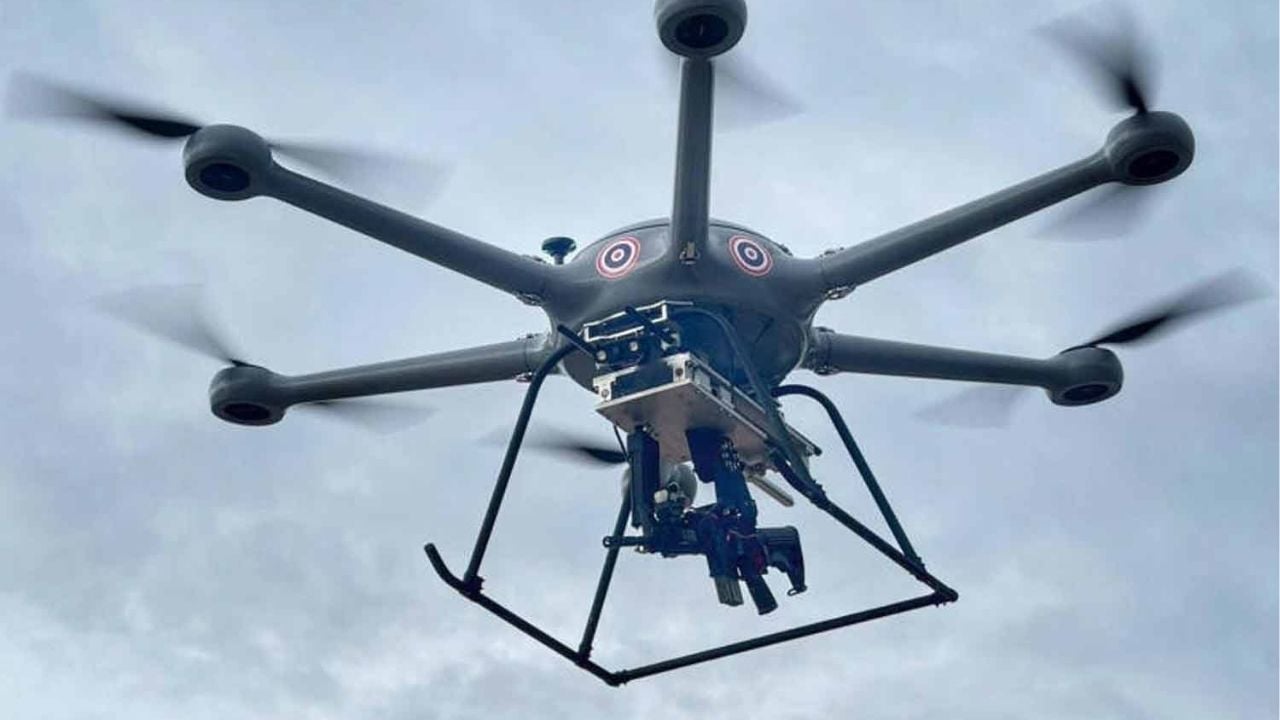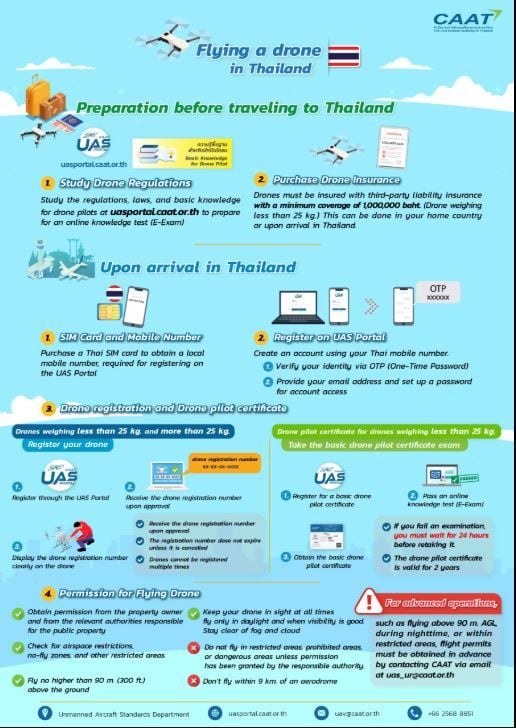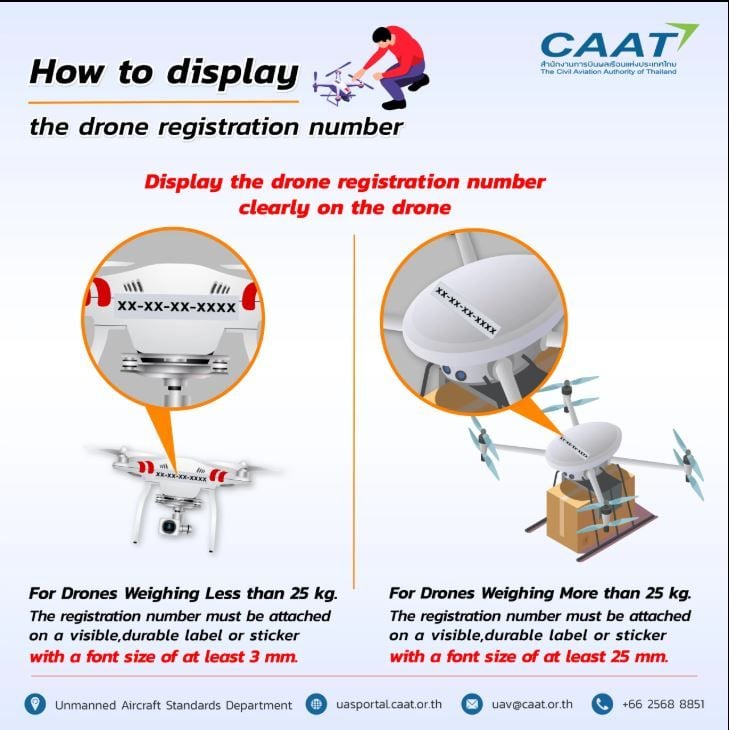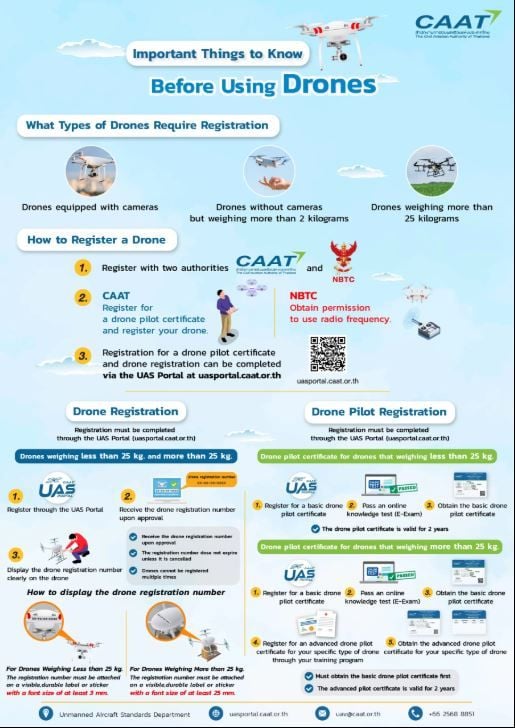Thailand grounds all drones as border tensions flare
CAAT suspends UAV operations, warning drones may be neutralised by security forces without notice

The Civil Aviation Authority of Thailand (CAAT) has imposed a nationwide drone ban from July 30 (yesterday) to August 15—or until further notice—as tensions rise along the Thai–Cambodian border. The drastic move is part of heightened national security measures.
The ban applies to all unmanned aerial vehicles (UAVs). Offenders risk up to one year in prison, a fine of 40,000 baht, or both. More alarmingly, military and security forces are authorised to immediately neutralise any unauthorised drones deemed a threat.
“Public cooperation is essential,” the CAAT said. “We urge all operators to suspend flights immediately and report any illegal drone activity to the appropriate authorities.”
Reports should include date, time, location, and a description of the drone—photos or videos are encouraged. Reports can be submitted directly to CAAT, the Anti-Drone Centre under the Metropolitan Police Bureau, or local emergency units.
The crackdown underscores just how seriously Thailand views aerial surveillance during this tense period. But even outside this temporary ban, flying a drone in Thailand is no walk in the park.
Drone operators must be registered with both the National Broadcasting and Telecommunications Commission (NBTC) and CAAT. Dual registration is mandatory—even if the drone is used recreationally.
Drones equipped with cameras or weighing more than 2 kilogrammes require a drone pilot certificate issued via the UAS Portal. All drones must be insured with third-party liability coverage of at least 1 million baht.



Starting June 30, CAAT permanently retired its old registration portal. All new registrations must now go through the UAS Portal. Pilots must verify their identity using a Thai SIM card and pass an online exam. Once certified, a registration number must be displayed clearly on the drone, according to TAT News.
Flights are allowed only during daylight, in good weather, and within the operator’s visual line of sight. Flying near airports, government buildings, or over crowds is strictly forbidden without special approval.
Latest Thailand News
Follow The Thaiger on Google News:


























